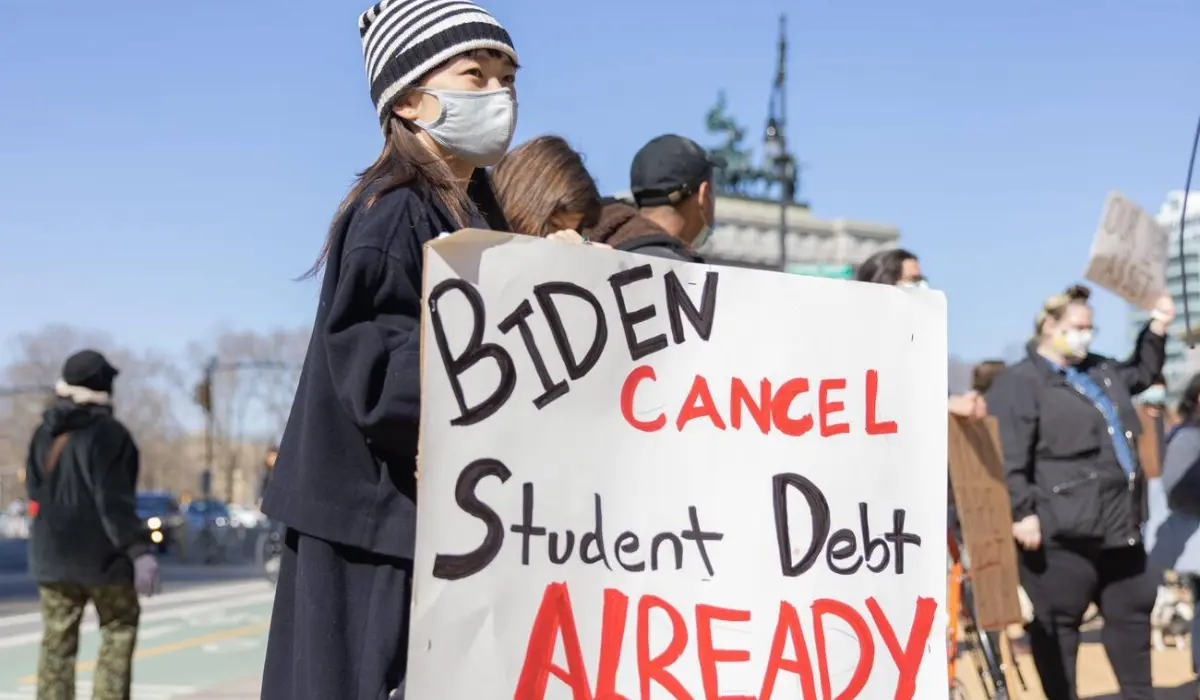A new legal battle has emerged over President Joe Biden’s latest student debt relief plan, as seven Republican-led states have filed a lawsuit to challenge the initiative. The lawsuit, which was submitted to a federal court in Georgia, argues that the Biden administration’s new proposal unlawfully seeks to cancel billions of dollars in student loans without proper authorization.
This move comes after the U.S. Supreme Court previously blocked Biden’s original debt cancellation plan, forcing the administration to rework its strategy. The latest legal challenge once again highlights the political divide over student loan forgiveness in the United States.
The Controversy Over Biden’s Student Debt Relief
The Biden administration has made student debt relief a priority, seeking to provide financial relief to millions of Americans burdened by federal student loans. The latest plan, introduced by the U.S. Department of Education, aims to cancel a portion of student debt for nearly 27.6 million borrowers.

However, the lawsuit, led by Missouri Attorney General Andrew Bailey and joined by attorneys general from Georgia, Alabama, Arkansas, Florida, North Dakota, and Ohio, claims that the Department of Education is unlawfully attempting to rush through the plan without following proper procedures. The plaintiffs argue that the department has instructed federal loan servicers to begin canceling loans before the rule is finalized, which they claim violates legal statutes.
According to the lawsuit, the Education Department could begin canceling up to $73 billion in student debt as early as this week. This swift action, the states argue, would prevent any further legal challenges from stopping the relief once the loans are canceled.
The Legal Arguments
The Republican-led states argue that the Department of Education lacks the authority to cancel such massive amounts of student debt without congressional approval. They claim that Secretary of Education Miguel Cardona is acting “secretly” and “through cloak and dagger” by pushing for mass debt cancellations before the public and Congress have had a chance to review and discuss the plan.
Missouri Attorney General Andrew Bailey expressed confidence that the lawsuit will be successful, stating, “We successfully halted their first two illegal student loan cancellation schemes; I have no doubt we will secure yet another win to block the third one.” The plaintiffs accuse the Biden administration of attempting to bypass the proper legislative process and push through debt forgiveness without proper oversight.
One of the key legal issues raised by the lawsuit is the timeline for implementing the plan. The states argue that under federal law, the Department of Education is required to wait at least 60 days after publishing the rule before canceling any debt. The lawsuit claims that the department is violating this statute by attempting to begin the debt cancellation process sooner.
Biden’s Previous Efforts Blocked by Courts
This lawsuit is the latest in a series of legal challenges aimed at blocking Biden’s efforts to fulfill his campaign promise of student debt relief. Earlier this year, the U.S. Supreme Court ruled against Biden’s original debt forgiveness plan, which would have canceled up to $20,000 per borrower for approximately 43 million Americans. The court’s conservative majority argued that the plan exceeded the administration’s authority.
Following that ruling, the Biden administration introduced a new debt relief plan, which was designed to be more modest in scope and based on different legal provisions. The new plan, known as the Saving on a Valuable Education (SAVE) plan, seeks to lower monthly payments for borrowers and accelerate loan forgiveness for certain individuals. However, even this revised approach has faced legal obstacles, with a federal appeals court recently blocking the plan while litigation continues.
Despite these setbacks, the Biden administration has remained committed to its goal of providing student debt relief. An Education Department spokesperson emphasized that the administration “will continue to fight for borrowers across the country who are struggling to repay their federal student loans.”
Political and Legal Implications
The Republican-led lawsuit against Biden’s new debt relief plan underscores the deep political divide over the issue of student loans in the U.S. Many Republican lawmakers and state officials argue that broad debt forgiveness is unfair to taxpayers and oversteps the federal government’s authority. They also contend that such relief disproportionately benefits wealthier individuals who are more likely to have taken out large student loans.
On the other hand, Biden and his supporters argue that student debt relief is a necessary step to address the rising cost of higher education and alleviate the financial burden on millions of Americans. The administration has already approved $169 billion in debt relief for nearly 4.8 million borrowers through previous initiatives.
The outcome of this latest lawsuit could have significant implications not only for the Biden administration’s debt relief efforts but also for future policies regarding student loans and higher education. If the court rules in favor of the plaintiffs, it could set a legal precedent that limits the federal government’s ability to unilaterally cancel student debt without congressional approval.
Conclusion
As the legal battle over student debt relief continues, millions of borrowers are left in uncertainty, wondering if they will receive the financial assistance they were promised. The Biden administration remains determined to push forward with its plan, but the Republican-led states are equally committed to blocking what they see as an overreach of executive power. With the courts now set to decide the fate of this new debt relief initiative, the future of student loan forgiveness in the U.S. hangs in the balance.

